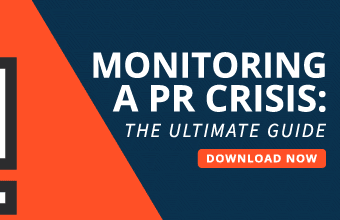Misinformation can be dangerous even during times of relative calm, but during a health crisis like the current pandemic, the stakes are much higher. Indeed, a new study from critical thinking org the Reboot Foundation found that close to a third of the public may harbor false views about the pandemic.
“Defeating the coronavirus depends on an informed and conscientious public that will conform to social distancing guidelines; practice good hygiene; and avoid unnecessary trips away from home,” said Helen Lee Bouygues, author of the report and head of the Reboot Foundation, in a news release. “But so far, the public’s response has been mixed, and misinformation about COVID-19 are a big part of the problem.”
To help understand the role misinformation is playing in the crisis, the study, Going Viral: How Social Media Is Making the Coronavirus Worse, both surveyed members of the public to see how well they understood COVID-19 and analyzed social media posts about the virus.
Almost a third of the public believes in COVID-19 myths
The survey asked questions based on reliable information regarding COVID-19, including from the Prevention and the Centers for Disease Control (CDC) and the World Health Organization (WHO).
Unfortunately, an alarming number of those surveyed answered questions about COVID-19 incorrectly. For instance, 26 percent of respondents believed that COVID-19 will likely die off in the spring, and another 10 percent thought regularly rinsing their nose with saline will help prevent the virus. Another 12 percent believed that COVID-19 was created by people.
Many survey participants, moreover, did not take the virus as seriously as one might hope—a full 20 percent believed it was not serious, while only 18 percent thought it was “extremely serious.”

Such erroneous beliefs and deep misinformation among the public may likely lead to a worsening of the crisis
For instance, if someone believes that the illness will die off in the warm weather, they will likely not engage in social distancing. Similarly, if someone believes that COVID-19 is not a serious illness, they might not engage in enough handwashing.
The research team also investigated the effect higher rates of social media use had on participants’ responses.
Those who only checked social media infrequently were significantly less likely (22 percent) to be misinformed about the virus than those who checked it hourly or more (36 percent).
Finally, the analysis investigated Twitter activity and showed that during March, there were about 1,000 tweets per minute about COVID-19.
COVID-19 myths on Twitter: Too many posts on social media contain weakly sourced information:


In short, the information on social media about COVID-19 is high in volume and low in quality, and heavy users of social media tend to exhibit a poor understanding of the crisis.
“These results are alarming because an ill-informed public could undermine efforts to contain the virus,” said Bouygues. “The coronavirus crisis is being exacerbated by a crisis in basic media literacy.”
The survey included 1,000 participants, from a diverse range of ages and geographical locations. The team drew on information from the Center for Disease Control and Prevention and the World Health Organization.








